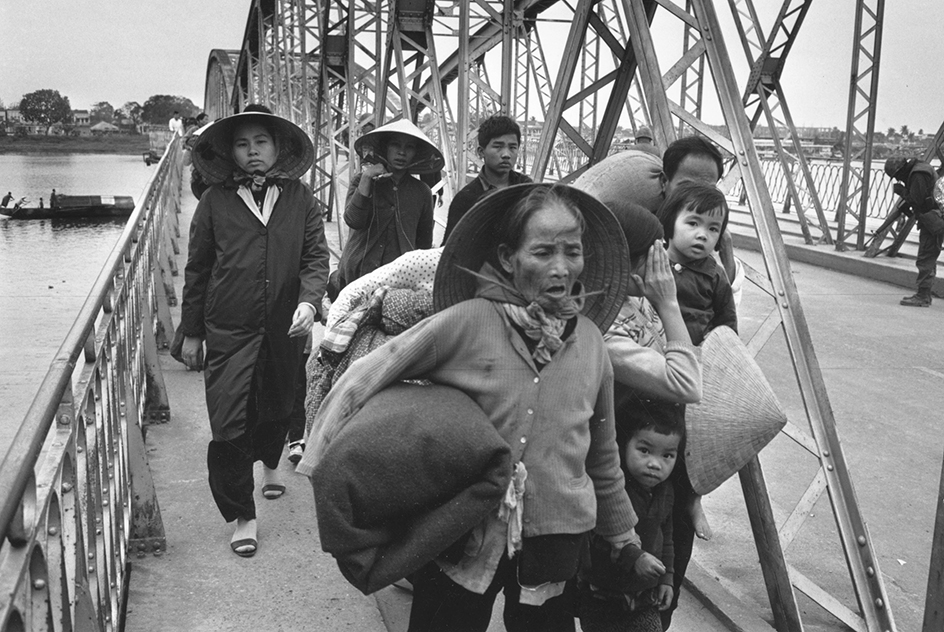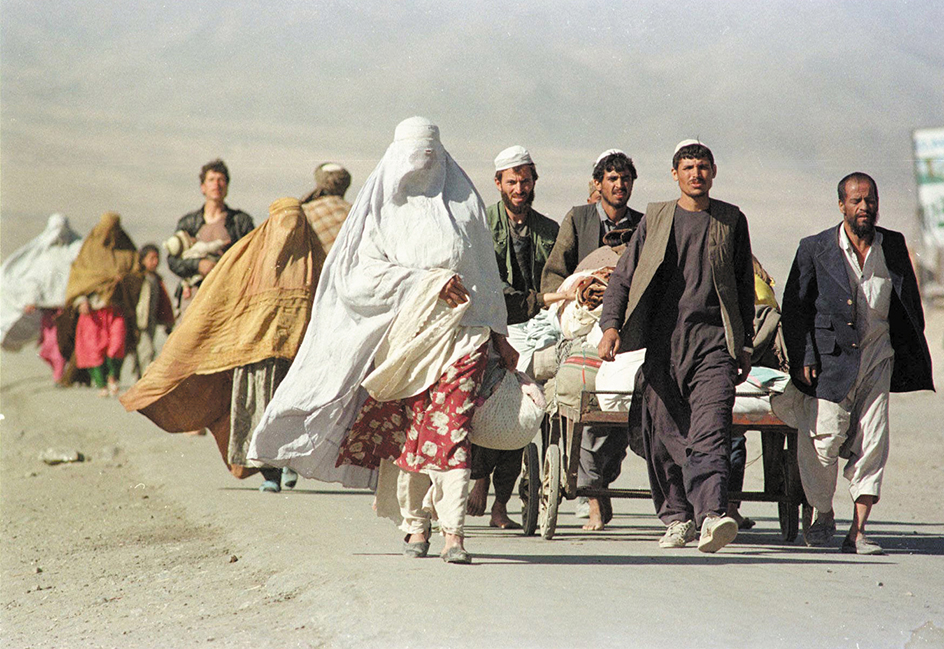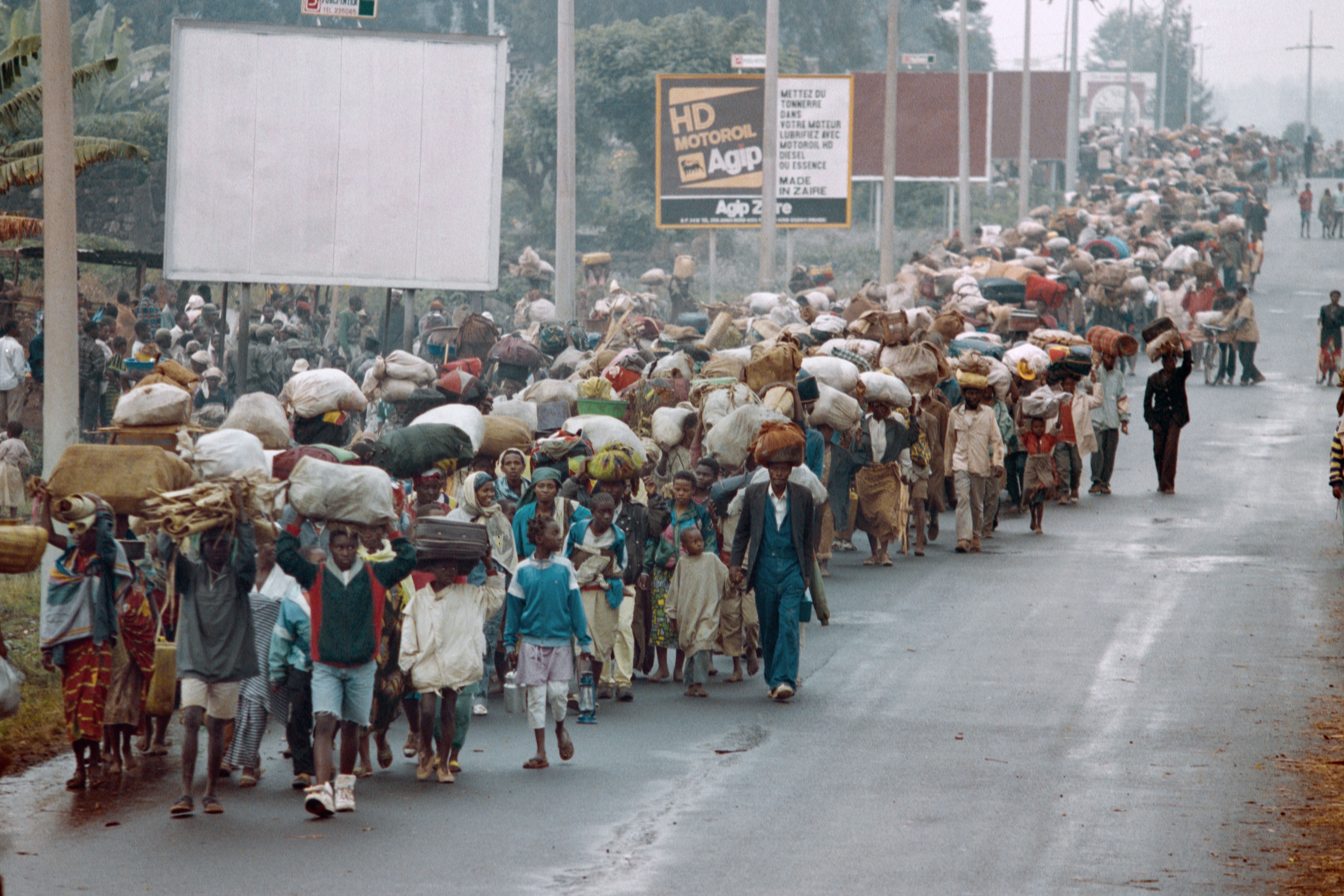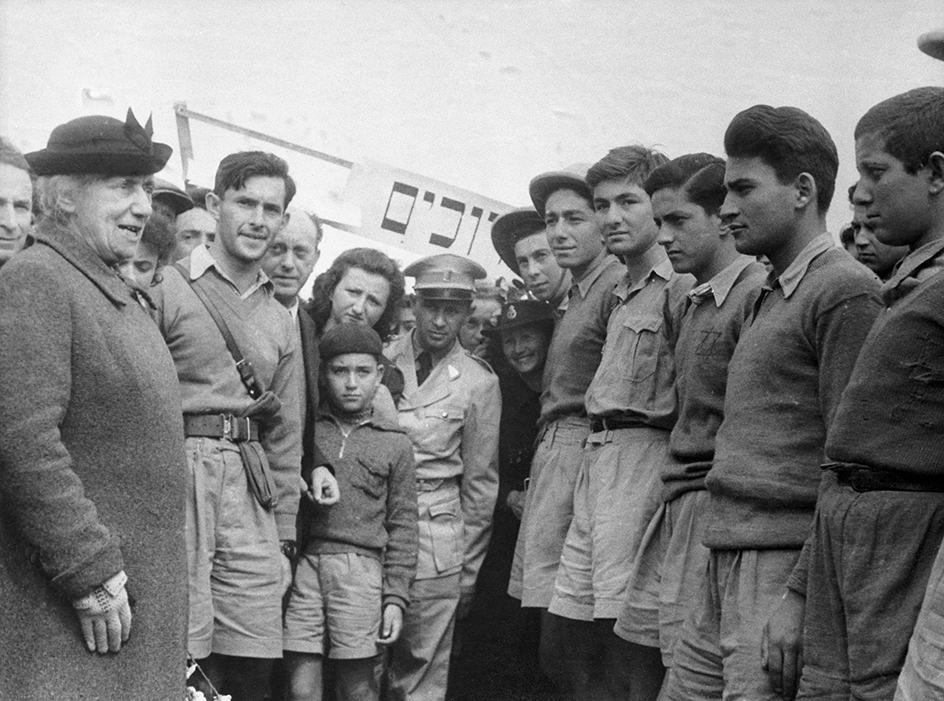Refugee is a person forced to flee from his or her country and find safety elsewhere. Many refugees seek to escape persecution based on religion, nationality, membership in a social group, or political beliefs. Some flee from war, famine, or other dangers. Many refugees give up everything—home, possessions, and family and friends—to pursue an uncertain future in a foreign land.

The term refugee comes from the French word refugie, which was used to describe Protestant Huguenots who fled France in 1685 because of Roman Catholic persecution. The term displaced person, or DP, is sometimes used interchangeably with refugee.
The flow of refugees from one country to another can present major international challenges. Countries that receive refugees—often called host countries—may have difficulty providing shelter, food, sanitation, and medical treatment for large numbers of people in need.
The rights of refugees.
Under international law, governments in host countries must respect the basic human rights of refugees. Refugees, in turn, are expected to respect the laws and regulations of host countries. The shelter and protection that host countries provide to refugees is called asylum. In host countries, refugees generally have freedom of movement, freedom of religion, and the ability to pursue education and work. However, some refugees have no choice but to stay in crowded refugee camps. Refoulement—that is, the forcible return of refugees to countries where they face persecution—is a violation of international law. 
International law follows a strict definition of the term refugee. The definition includes only individuals who are not criminals, traitors, government officials, or members of the military. Refugees must have fled their country because of a well-founded fear of persecution and cannot, or do not want to, return. Many who have fled their homes are not technically refugees and lack the same rights as refugees. Such people include internally displaced persons, who have left their homes but remain in their own country, and economic migrants, who have fled to escape poor economic conditions. 
Efforts to help refugees.
National governments and international organizations have long sought to address refugee problems associated with wars and other conflicts. In 1921, the League of Nations appointed the Norwegian explorer and scientist Fridtjof Nansen as a special commissioner to help refugees uprooted by World War I (1914-1918). Following Nansen’s death in 1930, the League established the Nansen International Office for Refugees. During World War II (1939-1945), the Allied nations set up the United Nations Relief and Rehabilitation Administration. After the United Nations formed in 1945, it set up a new agency, the International Refugee Organization (IRO). The IRO began operating in 1947.

In 1951, the United Nations High Commissioner for Refugees (UNHCR) replaced the IRO. The UNHCR has helped millions of refugees throughout the world. Other international efforts—including the International Organization for Migration and the European Council on Refugees and Exiles—have also provided assistance to refugees.
